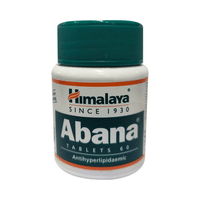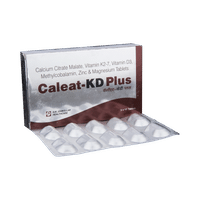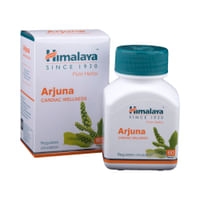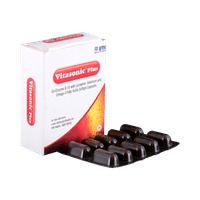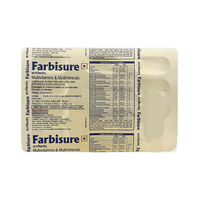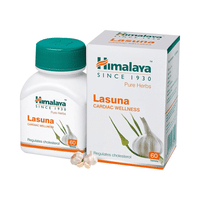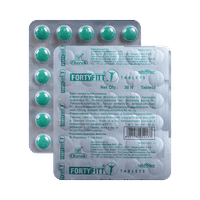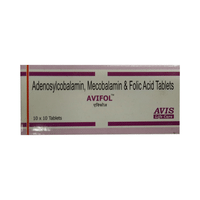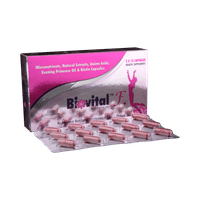Atropine Sulphate 1% Eye Ointment
Rs.14for 1 tube(s) (3 gm Eye Ointment each)
Atropine Sulphate Eye Ointment కొరకు ఆహారం సంపర్కం
Atropine Sulphate Eye Ointment కొరకు ఆల్కహాల్ సంపర్కం
Atropine Sulphate Eye Ointment కొరకు గర్భధారణ సంపర్కం
Atropine Sulphate Eye Ointment కొరకు చనుబాలివ్వడం సంపర్కం
ఆహారం
ఆల్కహాల్
గర్భధారణ
చనుబాలివ్వడం
No interaction found/established
No interaction found/established
Atropine Sulphate 1% Eye Ointmentను గర్భధారణ సమయంలో ఉపయోగించడం సురక్షితం కాకపోవచ్చు
జంతు అధ్యయనాల్లో పిండంపై వ్యతిరేక ప్రభావాలు చూపించబడ్డాయి, అయితే ఇవి మానవ అధ్యయనాల్లో పరిమితంగా ఉన్నాయి. గర్భధారణ మహిళల్లో దీనిని ఉపయోగించడం వల్ల కలిగే ప్రయోజనాలు, దీనిని ఉపయోగించడం వల్ల కలిగే ప్రమాదాల కంటే ఆమోదయోగ్యమైనవి. దయచేసి మీ వైద్యుడిని సంప్రదించండి.
జంతు అధ్యయనాల్లో పిండంపై వ్యతిరేక ప్రభావాలు చూపించబడ్డాయి, అయితే ఇవి మానవ అధ్యయనాల్లో పరిమితంగా ఉన్నాయి. గర్భధారణ మహిళల్లో దీనిని ఉపయోగించడం వల్ల కలిగే ప్రయోజనాలు, దీనిని ఉపయోగించడం వల్ల కలిగే ప్రమాదాల కంటే ఆమోదయోగ్యమైనవి. దయచేసి మీ వైద్యుడిని సంప్రదించండి.
CONSULT YOUR DOCTOR
బిడ్డకు పాలిచ్చే తల్లులు Atropine Sulphate 1% Eye Ointment వాడటం మంచిది.
దీని మానవ వినియోగం విషయంలో ఉన్న సమాచారం ప్రకారం, ఈ మందు చనుబాల ద్వారా బిడ్డకు చేరదు. ఒకవేళ చేరినా అది విషతుల్యం కాదు.
SAFE IF PRESCRIBED
Atropine Sulphate 1% w/w Eye Ointment కొరకు సాల్ట్ సమాచారం
Atropine(1% w/w)
Atropine sulphate eye ointment ఉపయోగిస్తుంది
Atropine Sulphate 1% Eye Ointmentను, బ్రాడీకార్డియా యొక్క చికిత్సలో ఉపయోగిస్తారు
ఎలా atropine sulphate eye ointment పనిచేస్తుంది
ఆట్రోపైన్ అనేది యాంటికొలినేర్జిక్ ఔషధాలుగా పిలవబడే ఔషధాల తరగతికి చెందింది. ఇది శరీరంలోని రసాయన కార్యకలాపం (అసిటికోలిన్) నిరోధించడం ద్వారా, లాలాజలం మరియు ఇతర శరీర స్రావాల ద్వారా ఉత్పత్తి అయ్యే ప్రభావాలను తగ్గించడం ద్వారా తిమ్మిర్లు, కడుపునొప్పి నుండి ఉపశమనంతో పాటు గుండె రేటు పెరగడం మరియు కనుపాప పెరుగుదల కలిగిస్తుంది.
Atropine sulphate eye ointment యొక్క సాధారణ దుష్ప్రభావాలు
నోరు ఎండిపోవడం, హృదయ స్పందన రేటు పెరగడం, ఫ్లషింగ్, మూత్రవిసర్జన చేయటం కష్టంగా ఉండటం, మలబద్ధకం, దృష్టి మసకబారడం
Atropine Sulphate Eye Ointment కొరకు ప్రత్యామ్నాయాలు
ఎలాంటి ప్రత్యామ్నాయాలు లేవుAtropine Sulphate 1% w/w Eye Ointment గురించి తరచుగా అడిగే ప్రశ్నలు
Atropine
Q. In what condition Atropine Sulphate 1% Eye Ointment should not be used?
Atropine Sulphate 1% Eye Ointment should not be used if you have or suspect you have glaucoma (high pressure in the eye) since it can increase the pressure in the eye or if you are having any eye infection.
Q. Does Atropine Sulphate 1% Eye Ointment cause blurred vision?
When you instill the eye drops for the first time, it can make your eyes watery and may sometimes cause blurred vision. If this happens, it will quickly clear. Make sure you can see clearly again before you drive, or use tools or machines.
Q. When should I seek a doctor’s advice?
You should contact your doctor immediately if you develop an eye infection, conjunctivitis, or an eyelid reaction. Also, you should inform the doctor if you have an eye injury or eye surgery. Discuss with your doctor if you have to continue using Atropine Sulphate 1% Eye Ointment.













